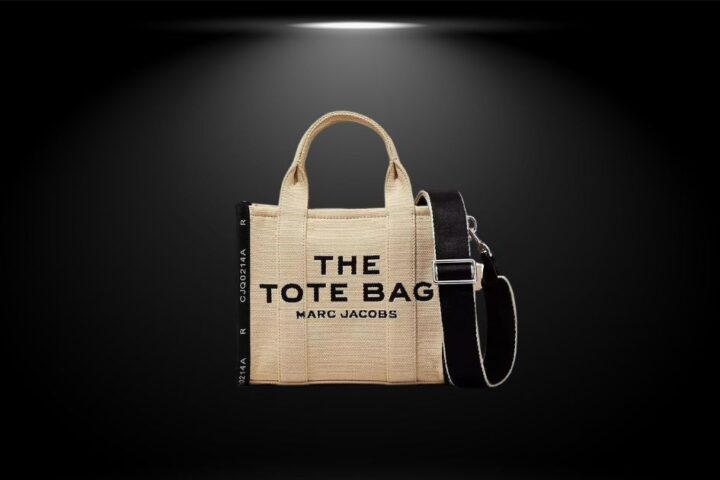The past decade has witnessed a skyrocketing spurt in advertising as an industry and enterprise. The rampant usage of advertisement and marketing has resulted into a causal chain of several socio-psychological problems like body dysmorphia and increasing insecurity about appearances because the doctored, airbrushed, and technically enhanced images in several modes of mass media has led to the creation of an ideal mold of beauty with predetermined and fixed standards, which are more often than not highly unrealistic. This brings us to encountering the phenomenon which I like to call the Kardashian effect i.e. the boom in usage of non-surgical cosmetic procedures to fit into society’s definition of beauty. The Kardashian-Jenner clan is infamous across the world for their sculpted appearances which are admittedly accomplished via a range of non-surgical cosmetic treatments like lip fillers, Botox, implants, etc. These non-surgical cosmetic procedures are widely adopted by those working in the show business however with the passage of time, these treatments are undergone by all those who chase beauty standards. Although there may be cases where these procedures have done more good than harm, psychologically.
However, that is not the point of contention of this article. This article aims to shed light upon how despite the widespread use of non-surgical cosmetic procedures, there is some lacunae in the regulations and laws governing the same. The scope and limitation of this article is restricted to United Kingdom. Although before diving head straight into the same, it is essential to understand what non-surgical cosmetic treatments mean. The most popular one being Botox which comprises of using botulinum toxin injection for ‘lifting’ the skin to prevent the formation of wrinkles most often used for stopping wrinkle formation near the eyes and temples. Dermal fillers are used to reshape several parts of the body, for example plumping the lips or carrying out a nose rhinoplasty. Chemical peels involve the removal of dead skin cells and the top skin layer that may be damaged to expose healthier, brighter, and younger skin; this procedure is also called as microdermabrasion which uses a microneedle roller to remove the dead cells. Another popular treatment is laser treatment which is the practice of removing hair on a semi-permanent basis.[1]
Save Face, a national register in the United Kingdom that is accredited by non-surgical cosmetic treatment professionals and that is recognised by the UK Government, The Department of Health, NHS England, shares data which reveals how in 2010 and 2015 the non-surgical cosmetic industry was worth £2.3 billion and £3.6 billion respectively. Data also showed that out of every 10 cosmetic treatments in the UK, 9 were non-surgical treatments.[2] Therefore the growing popularity of non-surgical cosmetic procedures warrants the creation of watertight regulations and laws in order to ensure safety of the patients and accountability of the practitioners.
The primary lacuna in the industry as of today is that there is a substantial absence of legislation with respect to determining as to what qualifications, licenses, expertise are mandatory for practitioners of non-surgical cosmetic procedures unlike such surgical procedures which require surgical incisions that mandatorily need its practitioner to be a qualified medical professional This loophole technically enables anybody to provide non-surgical cosmetic procedures since there are no prescribed standards in the concerned industry. This lack of legal formality with respect to regulating who can practice non-surgical cosmetic procedures gives rise to another set of problems with respect to consumer protection since there are no regulations on the way practitioners advertise services. Therefore, if the surgery is botched, there is no institution for grievance redressal against the wrongdoer. In several cases where a surgery gone wrong can have grave ramifications in the form of skin necrosis, skin burns, scarring or even paralysis or blindness in some extreme cases[3], the victim does not have a platform for redress. Since there is no bar on who can practice these treatments and who cannot, often practitioners are untrained and incompetent, and may also utilize unlicensed products for these procedures which may be cheap but harmful, posing as a serious threat to the consumers of this industry, who do not have any legal recourse against the practitioner. This is a pressing issue because as per the data from BAPRAS i.e. the British Association of Plastic, Reconstructive and Aesthetic Surgeons, in 2016, registered complaints for botched cosmetic procedures that needed to be surgically corrected were 249, however over time the complaints have just kept increasing due to lack of regulations and legal recourse and in 2018, the number of the complaints was 616[4], which is an alarming spike in number.
“Cosmetic interventions can have a profound impact on health and wellbeing. In other areas of life where this is the case, regulation provides safeguards to reduce harm.”[5]
Therefore, it has been recommended in the Final Report prepared by the Review Committee led by Professor Sir Bruce Keogh KBE titled ‘Review of the Regulation of Cosmetic Interventions’[6] that there should be a set of regulations set in place which have provisions about the legal mandate for presence of qualifications and licenses of non-surgical cosmetic practitioners along with the induction of an institution of ombudsman for supervising the formal complaints that arise due to substandard cosmetic procedures. Grievance redressal shall be enabled for consumers and it must be mandated for practitioners to advertise their services in compliance with legal provisions with respect to consumer protection laws. There should be regulations enforced on the minimum quality of products that have to be used during the procedures, especially in the case of dermal fillers and implants; and non-compliance of the quality should lead to legal action. A body or registry needs to be formed to oversee the licensing of such practitioners which should be made a mandatory exercise for any non-surgical cosmetic practitioner. Regulations similar to those of medical negligence need to be devised to impose accountability on the practitioners and safeguard victims legally. Apart from these regulations, consumers need to be made aware of their rights and how they should do their fair share of research before finalising their practitioner and should do their due diligence. There should also be more awareness spread on the root cause of the desire to undergo such non-surgical cosmetic procedures in the first place i.e. people need to be counseled about accepting themselves and not falling prey to unrealistic social norms of beauty. Lastly, a consent form must be signed by all consumers who are undergoing non-surgical cosmetic treatments.[7]
References:
[1] Save Face, ‘The 5 Most Popular Non-Surgical Cosmetic Procedures’ (Save Face) https://www.saveface.co.uk/5-most-popular-non-surgical-cosmetic-procedures/ accessed 24 July 2021
[2] Save Face, ‘Laws and Regulations for the Non-Surgical Cosmetic Industry’ (Save Face) https://www.saveface.co.uk/laws-regulations-non-surgical-cosmetic-industry/ accessed 24 July 2021
[3] Mike, ‘Exploring the need for better regulation of the non-surgical cosmetic industry’ (Cosmetic Surgery Solicitors by TJL Solicitors, April 02 2019) https://www.cosmeticsurgerysolicitors.co.uk/news/exploring-need-better-regulation-non-surgical-cosmetic-industry accessed 24 July 24, 2021
[4] Mike, ‘Exploring the need for better regulation of the non-surgical cosmetic industry’ (Cosmetic Surgery Solicitors by TJL Solicitors, April 02 2019) https://www.cosmeticsurgerysolicitors.co.uk/news/exploring-need-better-regulation-non-surgical-cosmetic-industry accessed 24 July 24, 2021
[5] Department of Health, ‘Review of the Regulation of Cosmetic Interventions – The Keogh Review’ (Department of Health, 2013) https://assets.publishing.service.gov.uk/government/uploads/system/uploads/attachment_data/file/192028/
Review_of_the_Regulation_of_Cosmetic_Interventions.pdf accessed 24 July 24, 2021
[6] Department of Health, ‘Review of the Regulation of Cosmetic Interventions – The Keogh Review’ (Department of Health, 2013) https://assets.publishing.service.gov.uk/government/uploads/system/uploads/attachment_data/file/192028/
Review_of_the_Regulation_of_Cosmetic_Interventions.pdf accessed 24 July 24, 2021
[7] Northern Ireland Civil Service WELL, ‘Cosmetic treatments need new regulation report finds’ (WELL) https://www.nicswell.co.uk/health-news/cosmetic-treatments-need-new-regulation-report-finds accessed 24 July 2021










